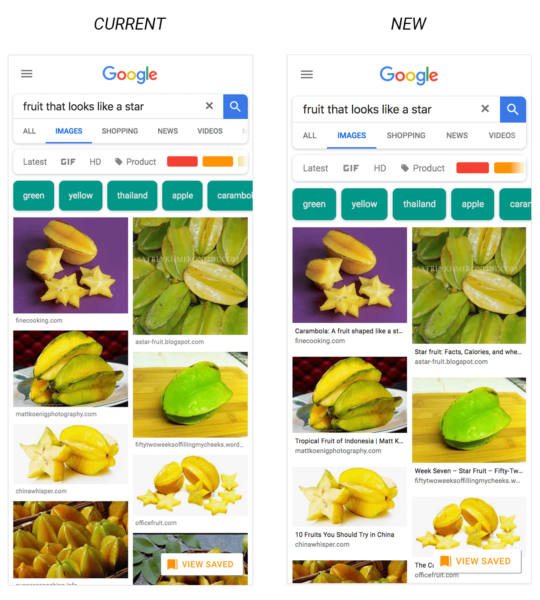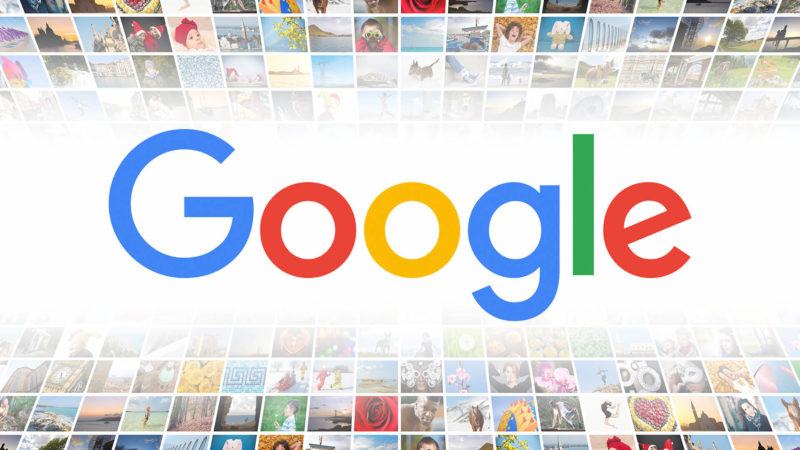Google Images update: Captions added to images, pulled from the page title tag
To add more context to image results, Google will now display a caption with images in mobile Images search results.
Google Images search results continue to evolve — from the rollout of badges last summer to the related searches box this past December and the removal of the “view image” and “search by image” buttons last month. Google has been rapidly expanding visual search features.
Beginning today, Google Images results will now include captions for each image. The rollout is global and will be available for mobile browsers and the Google app (iOS and Android). The caption displayed with an image will be pulled from the title of the page that features the image.
As shown in the image below, the caption will be shown below the image and above the page URL.

Google Images: without captions / with captions
From the announcement:
This extra piece of information gives you more context so you can easily find out what the image is about and whether the website would contain more relevant content for your needs.
When asked if these titles might be rewritten by Google for display with images, a Google spokesperson said, “We use web titles right now, but we’re continually experimenting with ways to improve the experience.” I also asked if Google might at times use captions for the images from the publisher’s page instead of the title tag content and was advised, “Currently we use the web page’s title and nothing more.”
In discussing examples that, while they might be outliers, will likely exist, I inquired about relevancy between the page title tag and the image itself. I asked if quality issues (from the user perspective) arise from any disparity. I used a fictional example — say, there’s a page titled, “The best baby shoes ever” that includes pictures of baby shoes, but also a photo of the author’s Labrador retriever. A person searching “labrador retriever” and getting “The best baby shoes ever” title with the labrador image may assume there’s something wrong with the results.
In regard to this type of scenario, I asked whether any validation was being done between the evaluated content of the image and the content of the page title that would prevent the example above from being returned in a “labrador retriever” Google Images search. The spokesperson replied: “No changes to ranking for this launch. We already use a variety of signals from the landing page to help deliver the most relevant results possible for users.”
Again, this change is global, but only for mobile Google Images searches — via mobile browsers or the Google App. Read the full announcement here.
Contributing authors are invited to create content for Search Engine Land and are chosen for their expertise and contribution to the search community. Our contributors work under the oversight of the editorial staff and contributions are checked for quality and relevance to our readers. Search Engine Land is owned by Semrush. Contributor was not asked to make any direct or indirect mentions of Semrush. The opinions they express are their own.



